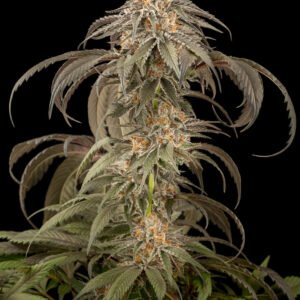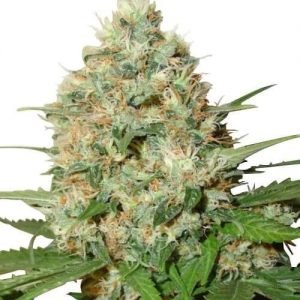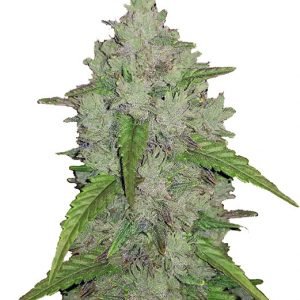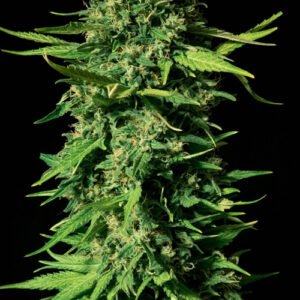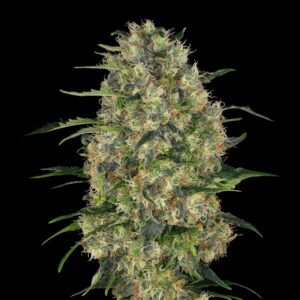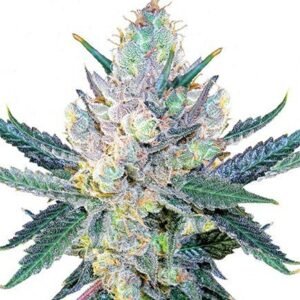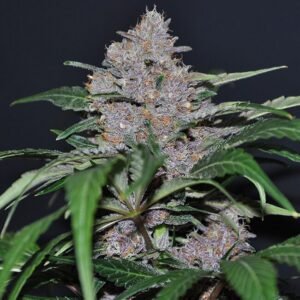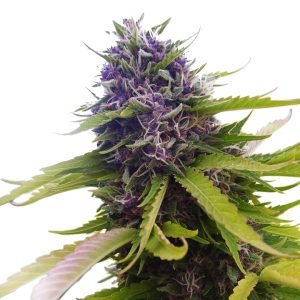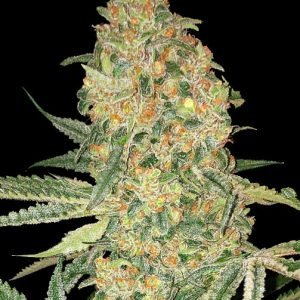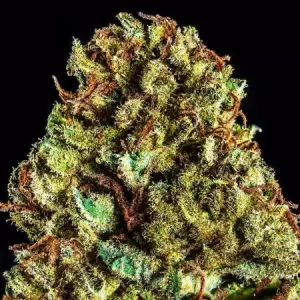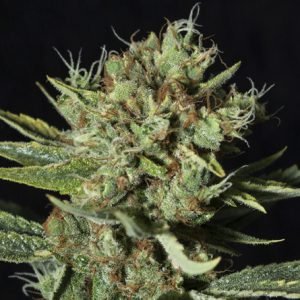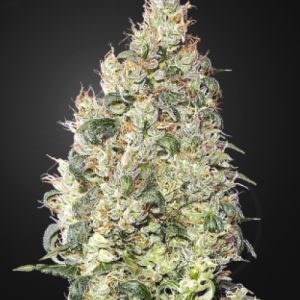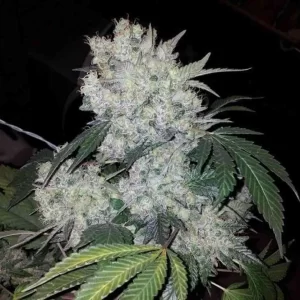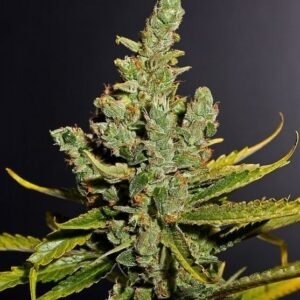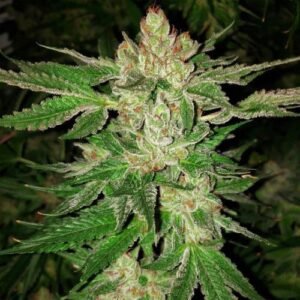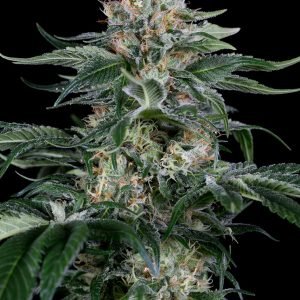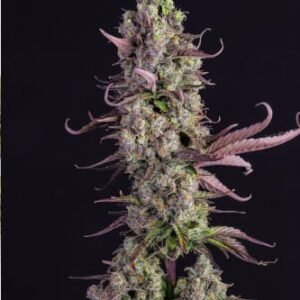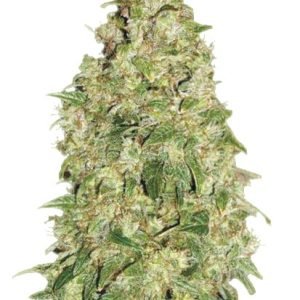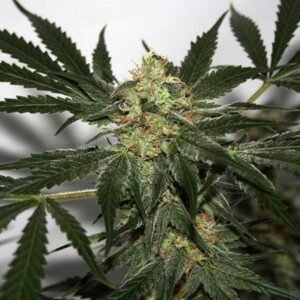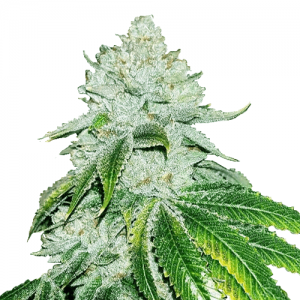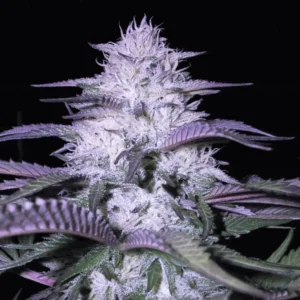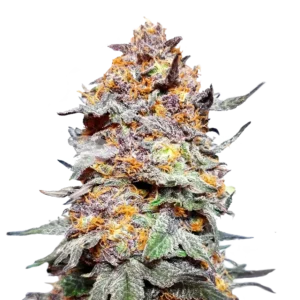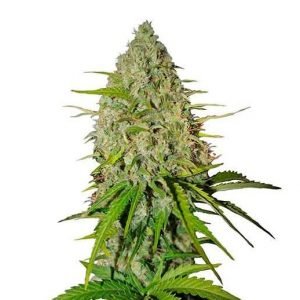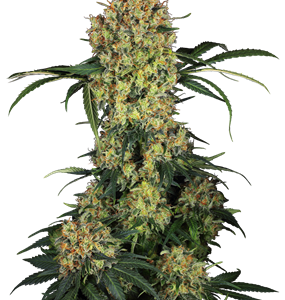
CBD for Therapy Leave a comment
What is CBD?
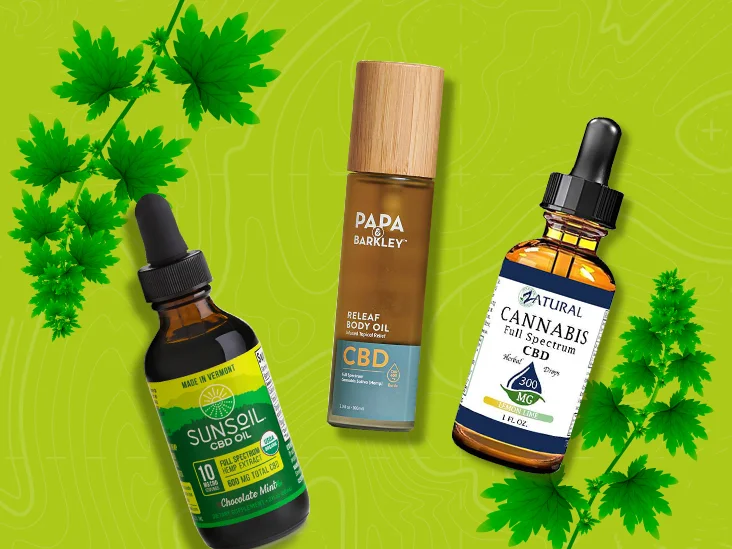
CBD products have experienced a surge in popularity in recent years, mainly due to growing research on the potential benefits of this cannabinoid for both the body and mind. While CBD is FDA-approved as a prescription medication (Epidiolex) for treating two severe forms of childhood epilepsy, it is also commercially available in various forms, such as oils, capsules, topical creams, and infused foods and beverages. Many individuals purchase CBD products to alleviate inflammation, relieve pain, or reduce anxiety.
Unlike THC, which can lead to anxiety or psychosis-like symptoms, CBD is generally well-tolerated by most people and is considered safe by researchers who study it. However, experts caution that some commercially available CBD products may contain traces of THC or other contaminants, which could potentially trigger negative reactions in some individuals. Therefore, it’s important to exercise caution and choose CBD products from reputable sources to ensure their purity and quality.
How it differs from Marijuana
CBD is among the compounds present in marijuana, but it differs from the one responsible for the typical “high” associated with the drug, which is tetrahydrocannabinol (THC). Unlike THC, CBD does not possess psychoactive properties, meaning it does not alter your thinking or perception of the world. Instead, CBD is known to induce a sense of calm and promote a positive mood without any mind-altering effects.
Mental Illness in Australia
Roughly one out of every five Australians is projected to encounter a mental illness during their lifetime, while the majority of us will confront mental health challenges at some point. Mental well-being constitutes an integral aspect of overall health. Mental disorders encompass a range of types and degrees of severity. Prevalent among these are anxiety disorders, followed by mood conditions like depression.
Globally, mental illness stands out as a foremost contributor to poor health and impairment, ranking as the third primary cause of disability in Australia. The repercussions of mental illness extend to physical health as well. Individuals grappling with conditions such as depression face twice the mortality risk compared to the general population, and they experience elevated incidence rates of physical health complications like heart disease, asthma, hypertension, cancer, and stroke.
A study indicated that those with moderate to severe mental disorders, such as bipolar disorder, schizophrenia, and other psychotic disorders, have an average life expectancy 10 to 20 years shorter than that of the general population. The adverse ramifications of mental illness accumulate significantly. Researchers estimate that depression alone incurs healthcare expenses and productivity losses exceeding $12.8 billion annually in Australia.

CBD for Therapy
The use of cannabis as medicine dates back to ancient times, with the first recorded therapeutic application around 2800 BC in Emperor Shen Nung’s China. In historical contexts, cannabis was utilized to treat conditions such as rheumatic pain, malaria, constipation, and reproductive disorders. It was also employed as an anesthetic during surgery and a tranquilizer in India to prevent convulsions in people with epilepsy and tetanus, as well as a topical antibiotic.
Over time, research into the therapeutic potential of cannabis has progressed significantly. Since the 1970s, experts have been particularly interested in exploring the benefits of CBD, which is the main non-psychoactive component of cannabis. Studies have shown that CBD can have various effects, such as reducing the risk of epileptic fits, alleviating nausea and vomiting, and possibly replicating the effects of pharmaceutical antidepressants and antipsychotics.
CBD VS THC
THC (delta-9-tetrahydrocannabinol) and CBD (cannabidiol) are two active compounds found in the cannabis plant. THC is the psychoactive component responsible for producing the “high” effect and has been associated with side effects like anxiety and psychosis. On the other hand, CBD is under research for its potential to reduce anxiety, psychosis, nausea, and seizures.
These two compounds exhibit distinct effects, emphasizing the importance of differentiating between the potential benefits of CBD and the more controversial use of THC, particularly when considering treatments for mental health conditions.

CBD Benefits
CBD interacts with the brain’s cannabinoid receptors, which are also naturally influenced by cannabinoids found in substances like cannabis. Moreover, the body produces these compounds to regulate essential functions like mood and sleep. Despite this knowledge, scientists have yet to fully comprehend the specific pathways through which CBD exerts its therapeutic effects.
In recent years, the popularity of commercial CBD has skyrocketed, with claims of being a remedy for a wide range of health issues. While some of these claims, like the notion of curing Alzheimer’s, have been proven to be false, there is growing evidence supporting the effectiveness of CBD for certain conditions such as anxiety, addiction, and epilepsy.
CBD for Mental Health
CBD has demonstrated promising potential as a treatment for various mental and physical ailments, including epilepsy, anxiety, opioid addiction, insomnia, schizophrenia, and chronic pain. However, experts caution that the evidence of its benefits remains highly preliminary. To establish its effects conclusively and determine appropriate dosing recommendations, further research is essential.
CBD For:
Insomnia
Insomnia is characterized by inadequate sleep quality even when appropriate time and environment for sleep are available. It’s unsurprising that a growing number of Australians are seeking medical assistance for sleep disorders. According to a study by the Sleep Health Foundation, 14.8% of Australians exhibit symptoms of insomnia. Insufficient sleep can lead to significant repercussions for both your physical well-being and mental health.
Throughout history, cannabis has been utilized as a sleep aid, effectively reducing the time needed to fall asleep and increasing overall sleep duration. CBD, in particular, has shown promise in helping individuals both initiate and maintain sleep. Furthermore, the compound’s ability to alleviate anxiety may serve as another pathway through which it can enhance sleep quality.
Want to learn more about CBD for Insomnia and what it could do for you? Click Here for an in-depth explanation and references on where and how to take CBD for your Insomnia. You can also watch the video below by Dr Jim explaining cannabis treatment for Insomnia.
Anxiety
Research suggests that CBD has the potential to alleviate symptoms of anxiety, making it a possible treatment for conditions like generalized anxiety disorder, social anxiety disorder, and post-traumatic stress disorder. However, despite these promising findings, scientists have not yet fully comprehended the precise mechanisms by which CBD affects the brain to produce these beneficial effects.
How does it work?
Discovered in the early 1990s by researchers investigating the common cannabinoid THC (delta-9-tetrahydrocannabinol), the endocannabinoid system (ECS) is a intricate cell-signaling network. This system remains active within your body, regardless of whether you use cannabis or not. It encompasses cannabinoid receptors dispersed throughout your body. The human brain boasts the highest concentration of cannabinoid receptors in the body. CBD influences the behavior of our brain cells by regulating the release of neurotransmitters, which are the body’s chemical messengers.
Additionally, CBD has the ability to stimulate non-cannabinoid receptors, including serotonin receptors. Depression and anxiety have been linked to low levels of serotonin, a neurotransmitter in the brain. In some individuals, CBD might assist the brain in utilizing serotonin more efficiently, although this mechanism is not yet fully comprehended.
Want to learn more about CBD for Anxiety and what it could do for you? Click Here for an in-depth explanation and references on where to purchase and how to take CBD for your Anxiety.
Addiction
A clinical trial involving individuals addicted to heroin who received daily CBD treatment showed promising results in reducing drug cravings. The beneficial effects were observed to persist for up to a week after the last dose of CBD. Additionally, CBD may aid in addiction treatment by alleviating anxiety and stress, providing further potential benefits for those struggling with addiction.
A study has discovered that cannabidiol (CBD) diminishes both drug cravings and anxiety among individuals in the process of recovering from heroin use disorder. Read full article Here.
Over the past decade, the United States has witnessed an unprecedented surge in opioid addiction, driven by the widespread utilization of heroin and prescription opioids. Unfortunately, the availability of effective treatments for heroin use disorders remains limited. In this particular investigation, researchers conducted a clinical trial to examine whether cannabidiol (CBD), a non-intoxicating cannabinoid derived from the cannabis plant, could alleviate drug cravings and anxiety among individuals who recently abstained from heroin use disorder. The results of the study demonstrated that individuals who were administered a dose of CBD medication exhibited diminished cravings for heroin and decreased anxiety levels compared to those who received a placebo. These effects were sustained for approximately one week following the administration of CBD medication.
Those who were administered the non-psychoactive CBD medication exhibited reduced cravings when exposed to drug cues in contrast to the group receiving a placebo. This impact persisted for at least a week following the CBD or placebo administration, with individuals who received a high dose of CBD (but not a low dose) continuing to experience diminished cravings compared to those on the placebo. Additionally, CBD led to a decrease in stress response measures subsequent to the drug cue, including reductions in heart rate and salivary cortisol levels. Individuals who received CBD also reported lower levels of anxiety after exposure to drug cues in comparison to those who received a placebo (although there were no significant anxiety differences between participants who received the low dose versus the high dose of CBD). CBD did not exhibit any influence on positive mood or cognitive measurements.
Schizophrenia
Preliminary research indicates that CBD shows promise as a potential treatment for schizophrenia in the future. Some small trials have revealed that CBD led to a reduction in psychotic symptoms, including hallucinations, and improved cognitive function in individuals with schizophrenia. However, another trial utilizing lower doses of CBD did not show significant differences in symptoms, emphasizing the need for further research to fully understand CBD’s potential in treating schizophrenia.
In a review conducted in 2021, the potential advantages of CBD in the context of early-stage schizophrenia are underscored. The researchers suggest that CBD might have the ability to modulate the levels of several brain chemicals linked to psychosis. As an illustration, CBD could potentially elevate anandamide levels in the brain, thereby potentially alleviating symptoms of psychosis.
In another recent comprehensive analysis, there is limited evidence indicating that CBD could potentially mitigate schizophrenia symptoms, particularly when administered at high dosages. The review highlights a 4-week trial involving an 800 milligram (mg) dose of CBD, which yielded results comparable to those of amisulpride—an antipsychotic medication—when it came to alleviating psychosis and enhancing cognitive functions.
In two separate 6-week trials involving individuals concurrently taking antipsychotic medications and CBD, the compound demonstrated no significant superiority over a placebo at a daily dosage of 600 mg. However, when administered at 1,000 mg, CBD exhibited a reduction in schizophrenia symptoms. It’s worth noting that this sample did not exclude individuals with recreational cannabis use or those struggling with cannabis addiction.
Read Full Article Here – https://www.medicalnewstoday.com/articles/does-cbd-oil-help-schizophrenia#risks
Seizures and Epilepsy
The FDA has granted approval for CBD to be used in the treatment of severe forms of childhood epilepsy, specifically Lennox-Gastaut syndrome and Dravet syndrome, under the medication name Epidiolex. This drug has demonstrated effectiveness in reducing seizures, often when used in conjunction with other anti-seizure medications, making it a valuable treatment option for affected individuals.
How does CBD counter Epileptic Seizures?
Conducted by researchers at NYU Grossman School of Medicine, the recent study revealed that CBD has the ability to inhibit signals transmitted by a molecule known as lysophosphatidylinositol (LPI). This molecule is present in neurons within the brain and is believed to enhance nerve signals as a part of regular functioning. However, in certain disease conditions, it can be exploited to trigger seizures. CBD’s blocking action on LPI holds promise in managing such seizure-related processes.
The study, published online on February 13 in the journal Neuron, reaffirmed a prior discovery indicating that CBD effectively hinders the ability of LPI to magnify nerve signals in the hippocampus, a brain region. Interestingly, the latest findings also demonstrate that LPI diminishes signals that typically counteract seizures, providing further insight into the beneficial effects of CBD treatment in managing seizure-related conditions.
The research, published online in the journal Neuron on February 13, confirmed a previous observation showing that CBD effectively prevents LPI from amplifying nerve signals in the hippocampus, a region of the brain. Additionally, the recent findings revealed that LPI weakens signals that usually act against seizures, offering deeper understanding of how CBD treatment can be valuable in addressing conditions related to seizures.
Dr. Tsien, the director of NYU Langone’s Neuroscience Institute, stated that the study not only revealed how CBD effectively combats seizures but also shed light on the broader aspects of how brain circuits maintain balance. The findings have potential implications for conditions like autism and schizophrenia, which involve similar imbalances in brain circuits, making the research’s impact more far-reaching.
Want to grow your own CBD dominant Cannabis strain? Click Here for our recommended Seed Bank or check out Sacred Seeds for a comprehensive list to choose from – https://sacredseeds.com.au/cannabis-seeds-australia/
CBD for Athletes
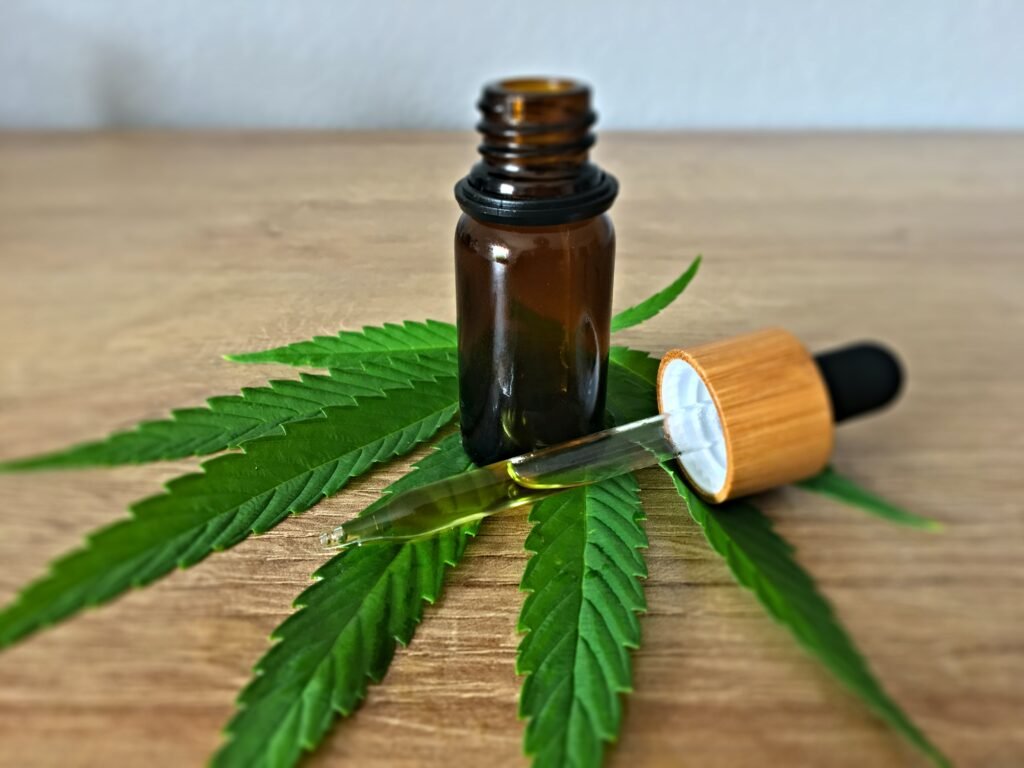

Why do runners seem to love CBD?
CBD, while not causing a high, offers the advantageous elements found in marijuana. A study conducted in 2016 on rats with arthritis demonstrated a noteworthy reduction in joint swelling and pain levels. Remarkably, this was achieved without the accompanying side effects often associated with alternative medications – quite impressive!
It’s important to note that CBD differs from steroids in that it doesn’t function as a performance enhancer. Instead, its effectiveness lies in its ability to mitigate nervousness, potentially leading to improved performance. While this study provides valuable insights, it’s just one piece of the puzzle. Multiple ongoing studies explore various applications of CBD, such as its potential to alleviate anxiety without inducing a high. This is a benefit frequently reported by regular users. Given the ongoing research efforts, it’s worth highlighting the reported advantages noted by both CBD brands and individuals who have incorporated it into their routines.
Advantages of CBD for Runners Among the most significant advantages lies in its capacity to enhance sleep quality – a veritable wonder drug for athletes. Numerous studies consistently underscore its ability to elevate performance across a spectrum ranging from speed to endurance. CBD has the potential to facilitate smoother and prolonged sleep, aiding in both quicker sleep onset and increased sleep duration.
This benefit is intertwined with the diverse mechanisms through which CBD operates:
- natural pain relief
- reduction of muscle aches and soreness
- reduced anxiety
- potential to reduce inflammation of Type 1 diabetes
- acne reduction
- promotes heart health
- promotes bone growth (healing stress fractures!)
What Led to the Surge in Popularity of CBD Among Athletes?
This is a captivating query as the rise of CBD in the athletic sphere appears to have gained substantial traction in a short span. Several factors contribute to this trend:
Success serves as a catalyst for further market entry, with projections of the industry exceeding 1 billion by 2020.
Evolving regulations are simplifying the sale of CBD products, aided by its non-banned status as a substance.
Increasingly comprehensive research is shedding light on its multifaceted applications.
The shift in legal frameworks is fostering greater public confidence in these offerings.
CBD stands out as a non-addictive pain relief alternative, addressing concerns associated with other pre-workout options.
Drawbacks
What are the Limitations of CBD Oil? Although generally regarded as safe, CBD may lead to undesirable effects such as diarrhea, fluctuations in appetite and weight, and fatigue in certain individuals.
Additional side effects, such as atypical results in liver function tests, drowsiness, sedation, and instances of pneumonia, have been documented in studies related to childhood epilepsy.
It’s worth noting that these effects could potentially arise due to CBD’s interaction with other medications, notably clobazam, as it has the potential to interact with various drugs. Consulting a qualified healthcare professional regarding appropriate dosage and potential side effect risks is highly recommended.
The market is rife with subpar CBD products, underscoring the importance of selecting items that have undergone third-party quality and purity assessments.
Brands like NuLeaf Naturals and exemplify the commitment to quality by subjecting their CBD products to testing by reputable third-party laboratories. These brands also make batch reports readily available on their websites, ensuring transparency and product integrity.
Conclusion
CBD oil holds promise in alleviating symptoms associated with anxiety, neurological disorders, heart-related concerns, specific pain types, and various other health conditions.
However, while certain research findings exist, a more comprehensive body of evidence is needed to establish definitive conclusions. Ongoing studies continue to explore its potential applications.
Considering that the full scope of CBD’s potential benefits is not yet fully elucidated, it is advisable to consult with a certified healthcare expert prior to considering its use.
Afghan Kush Feminized
10% Sativa, 90% Indica | THC 21% | Afghan Kush is an Indica cannabis strain originating from the renowned Hindu Kush mountain range, which stretches along the Afghan-Pakistan border. It is celebrated for its quintessential indica characteristics, producing large, resinous buds that deliver the classic body stone effect cherished by many users.
——————————————————————————
Is it legal to buy Cannabis seeds in Australia?
How can I buy Cannabis seeds in Australia?
AK-47 Feminized
Ak-47 was orginally created by the Netherland’s Serious Seeds in 1992 and has won 16 awards including the High Times Cannabis Cup. People love this strain around the world for its high THC content, strong flavour and high energy effects.
——————————————————————————
Is it legal to buy Cannabis seeds in Australia?
How can I buy Cannabis seeds in Australia?
Amnesia Haze Feminized
10% Indica – 90% Sativa | THC 21-25% | This is THE legit Dutch classic Sativa dominent powerhouse that is the proud winner of multiple Cannabis cups. This uplifter has a lemony, incense and cederwood flavour. Amnesia has a slightly longer growth phase overall, but this translates into massive yields and is well worth your attention for a truly supreme quality end product that is sure to please those aiming for a happy and uplifting high.
——————————————————————————
Is it legal to buy Cannabis seeds in Australia?
How can I buy Cannabis seeds in Australia?
Amnesia Platinum Feminized
70% Sativa, 30% Indica | THC 16 – 20% | The Original Amnesia Platinum was developed by a Dutch breeder who combined a renowned Haze female with a Northern Lights male. Due to its great success and high demand, the breeder has now released the first Original Amnesia Platinum Feminised seeds. This Sativa variety, which flowers like an Indica, grows rapidly, is highly productive and maintains a manageable height. The plants are extremely potent, boast an exceptionally sweet Haze aroma, and are covered in abundant resin crystals.
——————————————————————————
Is it legal to buy Cannabis seeds in Australia?
How can I buy Cannabis seeds in Australia?
Banana Monkey Feminized Seeds
30% Sativa, 70% Indica | THC 25-28% | Our Banana Monkey has an aroma of ripe bananas and fruity spice when you open the jar and a flavor profile that lives up to its name. Banana Monkey is tranquilizing and a bit of a creeper, as it slowly yet unrelentingly produces a deep whole-body relaxation thanks to the strong Indica influence. You’ll find your mind lifted into a state of happiness that has you feeling free of any bad moods or negative thoughts.
——————————————————————————
Is it legal to buy Cannabis seeds in Australia?
How can I buy Cannabis seeds in Australia?
Blak Domina Feminized
10% Sativa, 90% Indica | THC 20% | Black Domina is an Indica marijuana strain created by combining Northern Lights, Ortega, Hash Plant, and Afghani. This diverse blend produces deeply relaxing and sedative effects. Black Domina is known for its spicy pepper aroma and flavor, making it a popular choice among medical marijuana patients seeking relief from insomnia.
——————————————————————————
Is it legal to buy Cannabis seeds in Australia?
How can I buy Cannabis seeds in Australia?
Blue Cheese
40% Sativa, 60% Indica | THC 19% | Blue Cheese is an Indica strain created by crossing a Blueberry male with a female U.K. Cheese, a phenotype of Skunk #1. This combination results in a unique flavor profile that blends the sweet taste of berries with the savory notes of blue cheese, reminiscent of the original Cheese strain. Blue Cheese’s potent effects are perfect for unwinding after a long day, offering relief from muscle spasms, pain, and stress.
——————————————————————————
Is it legal to buy Cannabis seeds in Australia?
How can I buy Cannabis seeds in Australia?
Blue Dream
70% Sativa, 30% Indica | THC 19% | Blue Dream is a Sativa-dominant hybrid cannabis strain created by crossing Blueberry with Haze. Known for its balanced high, this strain offers both cerebral stimulation and full-body relaxation. With a THC content of 18% and low CBD levels, Blue Dream is popular among both beginners and experienced users. Its flavor profile is reminiscent of sweet berries, both in taste and aroma. Medical marijuana patients frequently choose Blue Dream to alleviate symptoms of depression, chronic pain, and nausea.
——————————————————————————
Is it legal to buy Cannabis seeds in Australia?
How can I buy Cannabis seeds in Australia?
Blueberry Feminized
70% Indica – 10% Sativa – 20% Ruderalis | THC 19-20% | This berry-tasted strain is a cross between Afghani Indica x Highland Thai Sativa x Purple Thai Sativa. This strain promotes calmness and ease and is great for combating anxiety and stress.
How can I buy Cannabis seeds in Australia?
Bruce Banner Feminized
25% Indica – 55% Sativa – 20% Ruderalis | THC 23% | This strain is followed by a cult over the years. It is loved for its distinct earthy, woody flavor with a sweet strawberry undertone. It is great for an energizing, motivational high filled with creativity and warmth. This plant is medium-sized and grows well indoors and outdoors.
——————————————————————————
Is it legal to buy Cannabis seeds in Australia?
How can I buy Cannabis seeds in Australia?
Bubblegum Feminized
80% Indica – 20% Sativa | THC 20 – 27% | This strain has large bubbly buds with a powerful high that offers great emotional and physical relief. This fruitful strain offers flavors of bubblegum, fruits, spices, bitterness, and earthiness.
——————————————————————————
Is it legal to buy Cannabis seeds in Australia?
How can I buy Cannabis seeds in Australia?
Caramel King Feminized
75% Indica – 5% Sativa | THC 20%
This exciting strain converges a cocktail of the top indica strains we all know and love today: Blue Black x Maple Leaf Indica x White Rhino. Auto Caramel King has a sweet flavor and aroma, with notes of caramel.
It is a fast hitter and has a very relaxing body-stoned effect. Brain activity will increase along with a relaxing body effect that isn’t too heavy, still allowing movement and mobility. Making this perfect for a good laugh with your friends at Saturday’s barbecue. Medicinally she is highly valued for her antidepressant and anxiolytic properties.
——————————————————————————
Is it legal to buy Cannabis seeds in Australia?
How can I buy Cannabis seeds in Australia?
CBD Cheese Feminized
60% Indica – 40% Sativa | THC 0.50% | CBD 15 – 17% | This legendary strain has an intense aroma of old cheese and an earthy, mossy taste, with hints of flowers. CBD Cheese delivers a moderately potent and long-lasting high, with a very nice sensation of well-being and happiness. Due to high CBD levels, this strain showcases many anxiolytic and anti-inflammatory properties and is great for medical use.
——————————————————————————
Is it legal to buy Cannabis seeds in Australia?
How can I buy Cannabis seeds in Australia?
CBD Gold Feminized
THC 4 – 6% | CBD 7 -10% | This strain is a medicinal Indica dominant plant that is extremely pleasant and aromatic. It provides a powerful, long-lasting body high that is perfect for relaxing.
——————————————————————————
Is it legal to buy Cannabis seeds in Australia?
How can I buy Cannabis seeds in Australia?
CBD Indica King Feminized
80% Indica – 20% Sativa | THC 0.70 – 0.90% | CBD 20 – 24% | Our CBD Indica King Strain is top-quality and best known for its potent effects and relaxing properties. This unique strain packs the right ratio of a tangy grapefruit flavor with tasty fruit cocktail aromas. When Grown and harvested with care, this CBD flower is packed with beneficial cannabinoids, terpenes, and flavonoids that work together to deliver a truly satisfying relaxing body-stoned, long-lasting experience.
——————————————————————————
Is it legal to buy Cannabis seeds in Australia?
How can I buy Cannabis seeds in Australia?
CBD White Widow Feminized
THC 4 – 6% | CBD 7 -10% | This strain is a medicinal Indica dominant plant that is extremely pleasant and aromatic. It provides a powerful, long-lasting body high that is perfect for relaxing.
——————————————————————————
Is it legal to buy Cannabis seeds in Australia?
How can I buy Cannabis seeds in Australia?
Cheese Feminized
20% Sativa, 80% Indica | THC 18-20% | Cheese is a renowned strain that originated in the United Kingdom. It is a unique female phenotype of Skunk #1, which is a hybrid of Afghani (indica), Acapulco Gold (sativa), and Columbian Gold (sativa). This strain preserves the uplifting effects of a sativa, making it popular among those dealing with stress and anxiety. Its potent body relaxation helps alleviate chronic pain and is beneficial for treating insomnia. Additionally, Cheese is frequently used to stimulate appetite.
——————————————————————————
Is it legal to buy Cannabis seeds in Australia?
How can I buy Cannabis seeds in Australia?
Chronical Feminized
60% Sativa, 40% Indica | THC 19-25% | This strain is known for its impressive yields, thanks to its robust hybrid genetics—a blend of Northern Lights, Skunk x Northern Lights, and AK-47. With a medium height and a less branchy structure, it’s not ideal for topping or super cropping. However, it excels in a Sea of Green setup, allowing growers to concentrate on the main colas and maximize plant density in limited space. Chronical delivers astonishing yields, but proper curing is essential to preserve its delightful sweet aroma.
——————————————————————————
Is it legal to buy Cannabis seeds in Australia?
How can I buy Cannabis seeds in Australia?
Cocopopo Feminized
5% Indica – 75% Sativa – 20% Ruderalis | THC 20 – 25% | This exciting genetic combination is birthed from O.G. Chocolate x Cannalope Haze. It is easy to grow and takes less effort to maintain than other strains. Enjoy the sweet, bitter chocolate taste with Cocopopo.
——————————————————————————
Is it legal to buy Cannabis seeds in Australia?
How can I buy Cannabis seeds in Australia?
Coffee Rocket Feminized
70% Sativa, 30% Indica | THC 25-28% | Coffee Rocket has an earthy, yet sweet flavor and a nice citrusy aroma with a hint of grape. It has high THC. The wonderful Coffee Rocket strain has rapid effects but will provide nice relaxation of the muscles and creative energy along with slight euphoria. Coffee Rocket is versatile and can be smoked day or night.
——————————————————————————
Is it legal to buy Cannabis seeds in Australia?
How can I buy Cannabis seeds in Australia?
Dosidos Rocketos Feminized
30% Sativa, 70% Indica | THC 26 – 32% | Introducing your new green companion! This Indica-dominant strain is packed with THC and boasts an incredible taste and aroma. It’s versatile, thriving indoors with the Screen of Green technique or Super Cropping, and flourishing outdoors in sunlight. Plus, it’s resilient enough to withstand colder climates. Enjoy legendary potency and unique effects with this exceptional all-round variety!
——————————————————————————
Is it legal to buy Cannabis seeds in Australia?
How can I buy Cannabis seeds in Australia?
Dubai Poison Feminized
100% Sativa | THC 8-20% Dubai Poison has a really complex flavor and aroma, with notes of lemon and spices. The effect it provides is potent, clear, and cerebral. This legendary strain has gained popularity worldwide for it’s energetic, uplifting effects. Durban is the perfect strain to help you stay productive through a busy day when exploring the outdoors, or to help you get creative.
——————————————————————————
Is it legal to buy Cannabis seeds in Australia?
How can I buy Cannabis seeds in Australia?
Early Top Skunk Feminized
35% Sativa, 65% Indica | THC 15 – 20% | Feminised Early Top Skunk seeds combine Skunk #1 and Early Pearl, creating hardy outdoor plants with dense, resin-coated buds. Early Pearl makes these plants mold-resistant and triggers early flowering from late July to late September. Skunk #1 ensures a high-quality yield. Ideal for all growers, this strain is reliable, easy to grow, and consistently produces top-grade cannabis.
——————————————————————————
Is it legal to buy Cannabis seeds in Australia?
How can I buy Cannabis seeds in Australia?
Euforia Special Feminized
30% Sativa | 70% Indica | THC 18 – 20% | Euforia Special blooms with heavy flowers on long branches with short internodes. During the vegetative stage, some plants may resemble Haze varieties, but their Indica traits become prominent once flowering begins. The plants are robust and have earned a lasting reputation among dedicated growers worldwide.
——————————————————————————
Is it legal to buy Cannabis seeds in Australia?
How can I buy Cannabis seeds in Australia?
Gelato Feminized
70% Indica – 30% Sativa | THC 21-27% | This strain is an absoluate corker! One of the nicests strains going around in our opinion and very under rated. Super strong, Very crystally large(ish) buds with very big yields. It’s fairly straight forward to grow and super strong.
——————————————————————————
Is it legal to buy Cannabis seeds in Australia?
How can I buy Cannabis seeds in Australia?
Godfather OG Feminized
40% Sativa | 60% Indica | THC 19% | Godfather OG, also known as “Godfather,” “The Don of All OG’s,” and “OG Godfather,” is a powerful indica strain created by crossing XXX OG and Alpha OG. This strain delivers sedating and relaxing effects, making it ideal for medical marijuana patients seeking relief from insomnia and pain.
Flavor Profile Godfather OG has a spicy and kushy flavor with subtle grape undertones.
THC Levels and Usage With high THC levels around 28%, consumers with low THC tolerance should only use Godfather OG in small doses.
——————————————————————————
Is it legal to buy Cannabis seeds in Australia?
How can I buy Cannabis seeds in Australia?
Gorilla Glue Feminized
50% Indica – 50% Sativa | THC 20-26% | One of the strongest cannabis strains available this one is recommended for the serious marijuana consumer! This popular strain has also won several cannabis awards like the Michigan and Los Angeles Cannabis Cups in 2014, and the High Times Jamaican World Cup.
——————————————————————————
Is it legal to buy Cannabis seeds in Australia?
How can I buy Cannabis seeds in Australia?
Granddaddy Purple Feminized
25% Sativa | 75% Indica | THC 17% | Granddaddy Purple, also known as “Grand Daddy Purp,” “Granddaddy Purps,” “GDP,” and “Grandaddy Purple Kush,” is an indica strain popularized in 2003 by Ken Estes. A cross of Mendo Purps, Skunk, and Afghanistan, it boasts a complex grape and berry aroma from its Mendo Purps and Afghanistan parents and a compact bud structure from Skunk. Its deep purple flowers are coated in white crystal resin. GDP delivers strong mind and body effects, combining cerebral euphoria with physical relaxation. It’s often used to relieve pain, stress, insomnia, appetite loss, and muscle spasms. GDP yields large harvests, ready in about 60 days indoors.
——————————————————————————
Is it legal to buy Cannabis seeds in Australia?
How can I buy Cannabis seeds in Australia?
Grapefruit Feminized
20% Indica – 80% Sativa | THC 16-20%
The Vancouver, Canada staple…. This 80% Sativa strain has a sweet and fruity aroma similar to the smell of ripe grapefruit It’s an 80’s old secret mix of Cinderalla 99 with a mystical grapefruit flavoured Sativa.
With the smell of pineapple and grapefuit this has an uplifting & stimulating high good for focus, creativity and pleasure.
——————————————————————————
Is it legal to buy Cannabis seeds in Australia?
How can I buy Cannabis seeds in Australia?
Green Candy Feminized
40% Indica – 60% Sativa | THC 20-24% | Green Candy has an intensely fruity aroma and flavor, with notes of mango, pineapple, exotic wood, and incense. The effect is stimulating, focused, and energizing, providing a cerebrally powerful Sativa-like high. Only a few puffs of this potent beauty will allow your stress and anxiety to melt away along with waves of euphoria.
Is it legal to buy Cannabis seeds in Australia?
How can I buy Cannabis seeds in Australia?
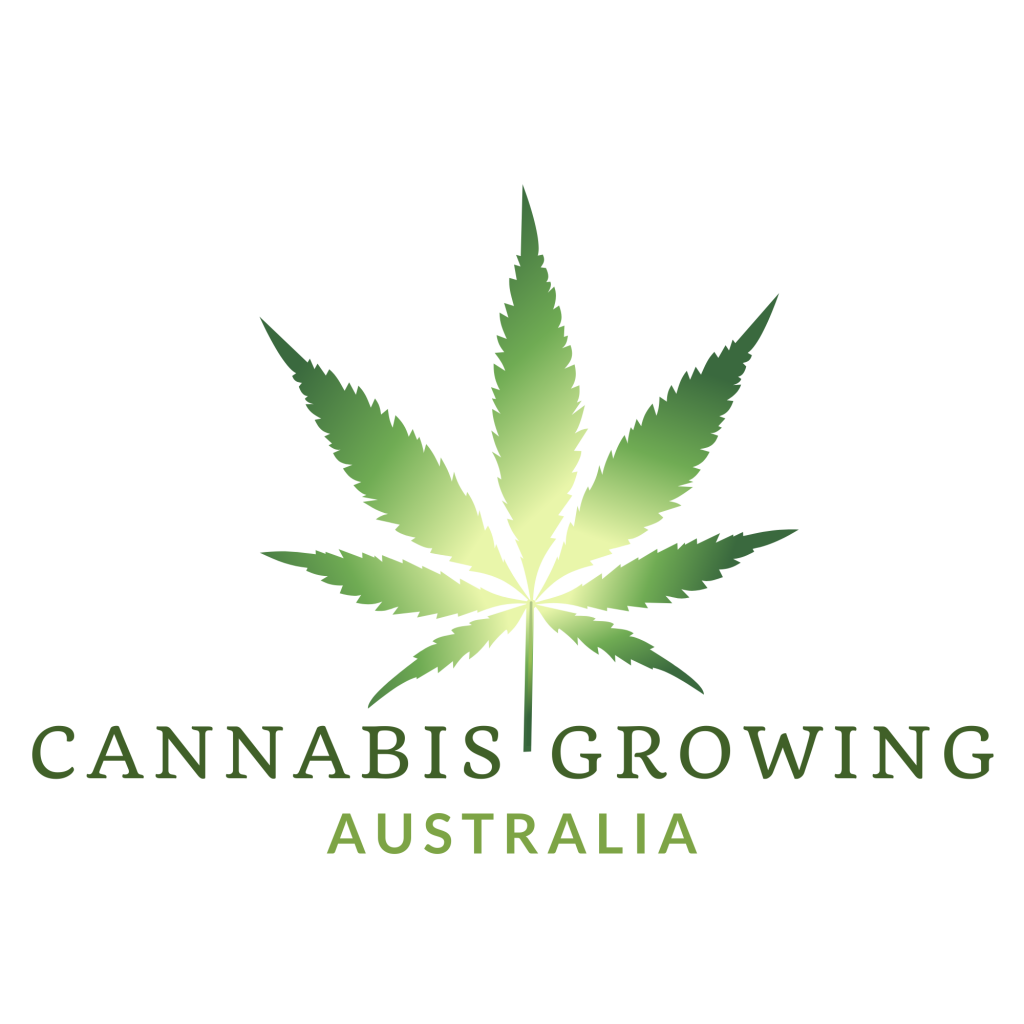
About the Author
Our deep love of plants and fascination with Cannabis has enabled over 25 years of successful small scale Marijuana cultivation from indoor hydroponics, greenhouses and outdoor growing set-ups.
As Cannabis laws around the world change, *we support the movement toward freedom of choice for responsible, consenting adults who wish to experience the joy and wonder of growing a Cannabis plant.

